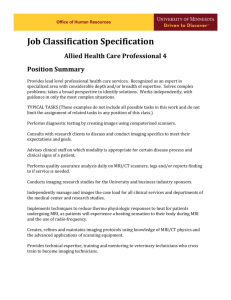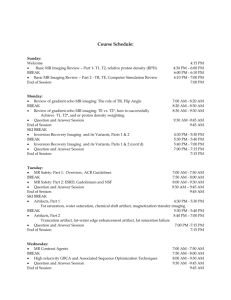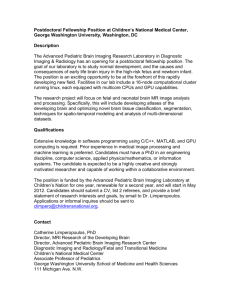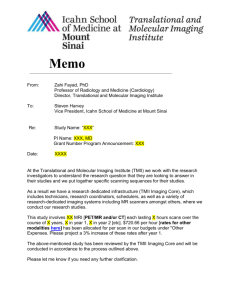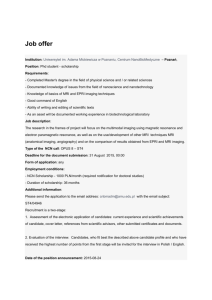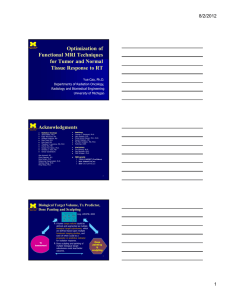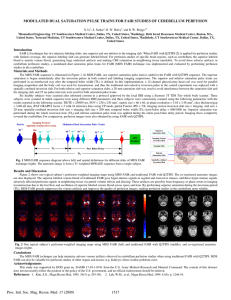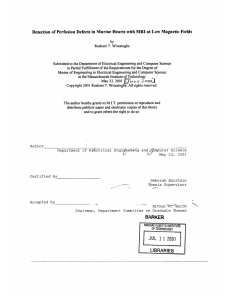Postdoctoral fellow positions
advertisement
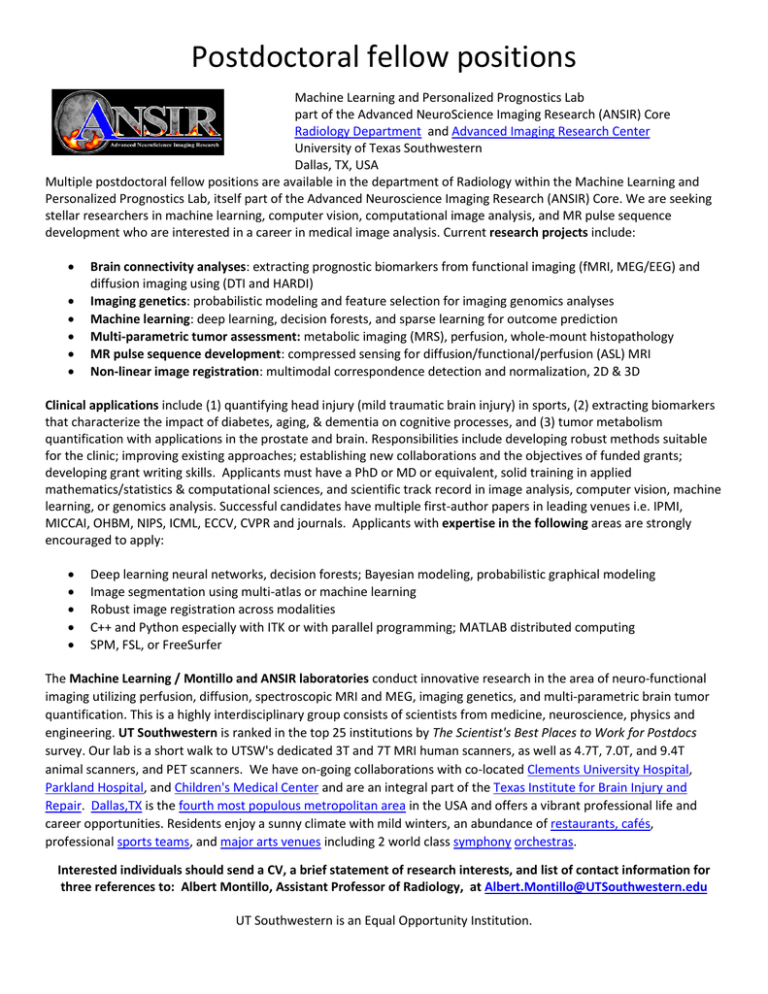
Postdoctoral fellow positions Machine Learning and Personalized Prognostics Lab part of the Advanced NeuroScience Imaging Research (ANSIR) Core Radiology Department and Advanced Imaging Research Center University of Texas Southwestern Dallas, TX, USA Multiple postdoctoral fellow positions are available in the department of Radiology within the Machine Learning and Personalized Prognostics Lab, itself part of the Advanced Neuroscience Imaging Research (ANSIR) Core. We are seeking stellar researchers in machine learning, computer vision, computational image analysis, and MR pulse sequence development who are interested in a career in medical image analysis. Current research projects include: Brain connectivity analyses: extracting prognostic biomarkers from functional imaging (fMRI, MEG/EEG) and diffusion imaging using (DTI and HARDI) Imaging genetics: probabilistic modeling and feature selection for imaging genomics analyses Machine learning: deep learning, decision forests, and sparse learning for outcome prediction Multi-parametric tumor assessment: metabolic imaging (MRS), perfusion, whole-mount histopathology MR pulse sequence development: compressed sensing for diffusion/functional/perfusion (ASL) MRI Non-linear image registration: multimodal correspondence detection and normalization, 2D & 3D Clinical applications include (1) quantifying head injury (mild traumatic brain injury) in sports, (2) extracting biomarkers that characterize the impact of diabetes, aging, & dementia on cognitive processes, and (3) tumor metabolism quantification with applications in the prostate and brain. Responsibilities include developing robust methods suitable for the clinic; improving existing approaches; establishing new collaborations and the objectives of funded grants; developing grant writing skills. Applicants must have a PhD or MD or equivalent, solid training in applied mathematics/statistics & computational sciences, and scientific track record in image analysis, computer vision, machine learning, or genomics analysis. Successful candidates have multiple first-author papers in leading venues i.e. IPMI, MICCAI, OHBM, NIPS, ICML, ECCV, CVPR and journals. Applicants with expertise in the following areas are strongly encouraged to apply: Deep learning neural networks, decision forests; Bayesian modeling, probabilistic graphical modeling Image segmentation using multi-atlas or machine learning Robust image registration across modalities C++ and Python especially with ITK or with parallel programming; MATLAB distributed computing SPM, FSL, or FreeSurfer The Machine Learning / Montillo and ANSIR laboratories conduct innovative research in the area of neuro-functional imaging utilizing perfusion, diffusion, spectroscopic MRI and MEG, imaging genetics, and multi-parametric brain tumor quantification. This is a highly interdisciplinary group consists of scientists from medicine, neuroscience, physics and engineering. UT Southwestern is ranked in the top 25 institutions by The Scientist's Best Places to Work for Postdocs survey. Our lab is a short walk to UTSW's dedicated 3T and 7T MRI human scanners, as well as 4.7T, 7.0T, and 9.4T animal scanners, and PET scanners. We have on-going collaborations with co-located Clements University Hospital, Parkland Hospital, and Children's Medical Center and are an integral part of the Texas Institute for Brain Injury and Repair. Dallas,TX is the fourth most populous metropolitan area in the USA and offers a vibrant professional life and career opportunities. Residents enjoy a sunny climate with mild winters, an abundance of restaurants, cafés, professional sports teams, and major arts venues including 2 world class symphony orchestras. Interested individuals should send a CV, a brief statement of research interests, and list of contact information for three references to: Albert Montillo, Assistant Professor of Radiology, at Albert.Montillo@UTSouthwestern.edu UT Southwestern is an Equal Opportunity Institution.
